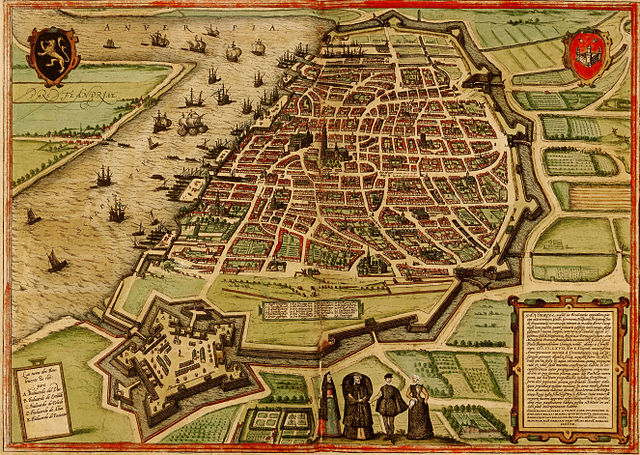Legal historian Wim Decock of the KU Leuven recently published a study of the economic thought of the Flemish Jesuit Leonardus Lessius (1554–1623). Last week the National Catholic Register posted an interview with Decock about his book and Lessius’s contribution to economics. Lessius was one of a host of significant early modern authors who addressed the economic realities of the burgeoning European market economies. These early modern authors, despite recovery efforts by Decock and other scholars, continue to be overlooked in both the histories of economics and ethics. The interview contains much food for thought, but I highlight two more general points here.
First, Decock argues that the early modern era was one in which personal prosperity and wealth was not seen as necessarily in conflict with solidarity and the pursuit of the common good. Lessius and others saw that commercial pursuits and profits could (and, in many cases, did) promote a community’s prosperity. The great growth of European merchant centers, such as Antwerp, were examples of this. Says Decock, “At this time, there was no contradiction between a businessman who was seeking his own interest and the interest of a community. Such an opposition is very modern.”
Second, Decock reminds us that the famous thesis of Max Weber regarding the Protestant (and largely Puritan) origins of capitalism does not provide a complete picture of the origins of the modern market economy. Decock’s book has an entire chapter addressing the shortcomings of Weber’s thesis. In the interview he notes that the so-called Protestant work ethic was actually Christian self-discipline, which was already “very present” in the medieval world. Weber himself noted the deeper reality without acknowledging its function prior to the Protestant Reformation. At this point, we might also challenge Decock’s statement that Martin Luther “was totally hostile to capitalism.” Luther’s view of market economies was more complex, and perhaps not always consistent, but Luther did have a very positive view of work and vocation. The fact that Weber largely ignored Luther and later positive Lutheran contributions to economic thought indicates another weakness in Weber’s thesis, which fixated almost exclusively on seventeenth-century Puritans.
Decock’s comments about Lessius’s specific contributions are well worth reading, and I hope his book (currently in French) will be published in English soon. In the meantime, English readers can consult Decock’s introduction to Lessius’s economic thought, along with translations of selected passages from Lessius, in the short primer published by CLP Academic. Readers interested in the recovery of early modern sources in the disciplines of economics, ethics, and law may be interested in the series that I co-edit with Wim Decock, also published by CLP Academic.

